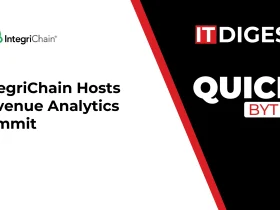MongoDB, Inc. at MongoDB.local Boston, announced the launch of MongoDB Atlas for Healthcare and MongoDB Atlas for Insurance, two new initiatives that help companies in these industries accelerate their pace of innovation and better serve end-users with modern, data-driven applications. MongoDB Atlas for Healthcare and MongoDB Atlas for Insurance include expert-led innovation workshops, tailored technology partnerships, and industry-specific knowledge accelerators to provide customized training paths designed for a range of use cases that developers in these industries work with. To learn more about MongoDB Atlas for Industries.
“Organizations in the healthcare and insurance industries depend on large volumes of highly sensitive data to make critical decisions about patient care and coverage policies for customers. However, these industries face challenges not only from legacy applications that rely on siloed data, but also complex networks of providers and organizations. These constraints prevent them from realizing the full potential of their data,” said Boris Bialek, Field CTO of Industry Solutions at MongoDB. “With the launch of MongoDB Atlas for Healthcare and MongoDB Atlas for Insurance, we’re alleviating these challenges by providing organizations with the tools required to build modern applications that increase operational efficiency and productivity. Deploying modern applications with MongoDB can help increase interoperability across entire enterprises that enable healthcare organizations to harness real-time patient insights and build personalized care pathways, and for insurers to capitalize on AI, machine learning, and advanced analytics to modernize their underwriting and claims processes.”
Also Read: Tendo Adds Veteran Healthcare Analytics and Informatics Innovator to Leadership Team
MongoDB Atlas for Healthcare and MongoDB Atlas for Insurance include solutions and capabilities that can help organizations reimagine how they interact with end users by deploying data-driven applications with the flexibility, security, and resilience the healthcare and insurance industries require:
- Migrate and modernize legacy applications with minimal risk and zero downtime: For organizations in the healthcare and insurance industries that want to move from legacy relational databases to modern applications on MongoDB Atlas, MongoDB Relational Migrator reduces the time, cost, and risk typically associated with these projects–making it significantly faster and easier to optimize operations and accelerate innovation. MongoDB Relational Migrator analyzes legacy databases, automatically generates new data schema and code to operate migrated applications, and then executes a seamless migration to MongoDB Atlas with no downtime required. Organizations can run the migrated, modernized application in a testing environment before deploying to production to ensure it is optimized and performing as intended. MongoDB Relational Migrator provides companies in the healthcare and insurance industries with the flexibility to move to MongoDB Atlas quickly and efficiently, so they can focus on building and shipping world-class applications.
- Protect sensitive data throughout applications: With MongoDB Queryable Encryption, healthcare and insurance organizations can ensure full-lifecycle encryption of sensitive data—including patient records, medical histories, and insurance claims—not only in-transit over networks and at-rest during storage, but also while data is in use during querying. MongoDB Queryable Encryption provides state-of-the-art encryption that helps reduce data exfiltration and operational risk with an easy-to-use capability organizations can use to secure highly sensitive workloads with no cryptography expertise required. With MongoDB Queryable Encryption, developers in these industries working with highly sensitive information can protect their data throughout its entire lifecycle when being stored, queried, and processed on MongoDB.
SOURCE: PRNewswire

































